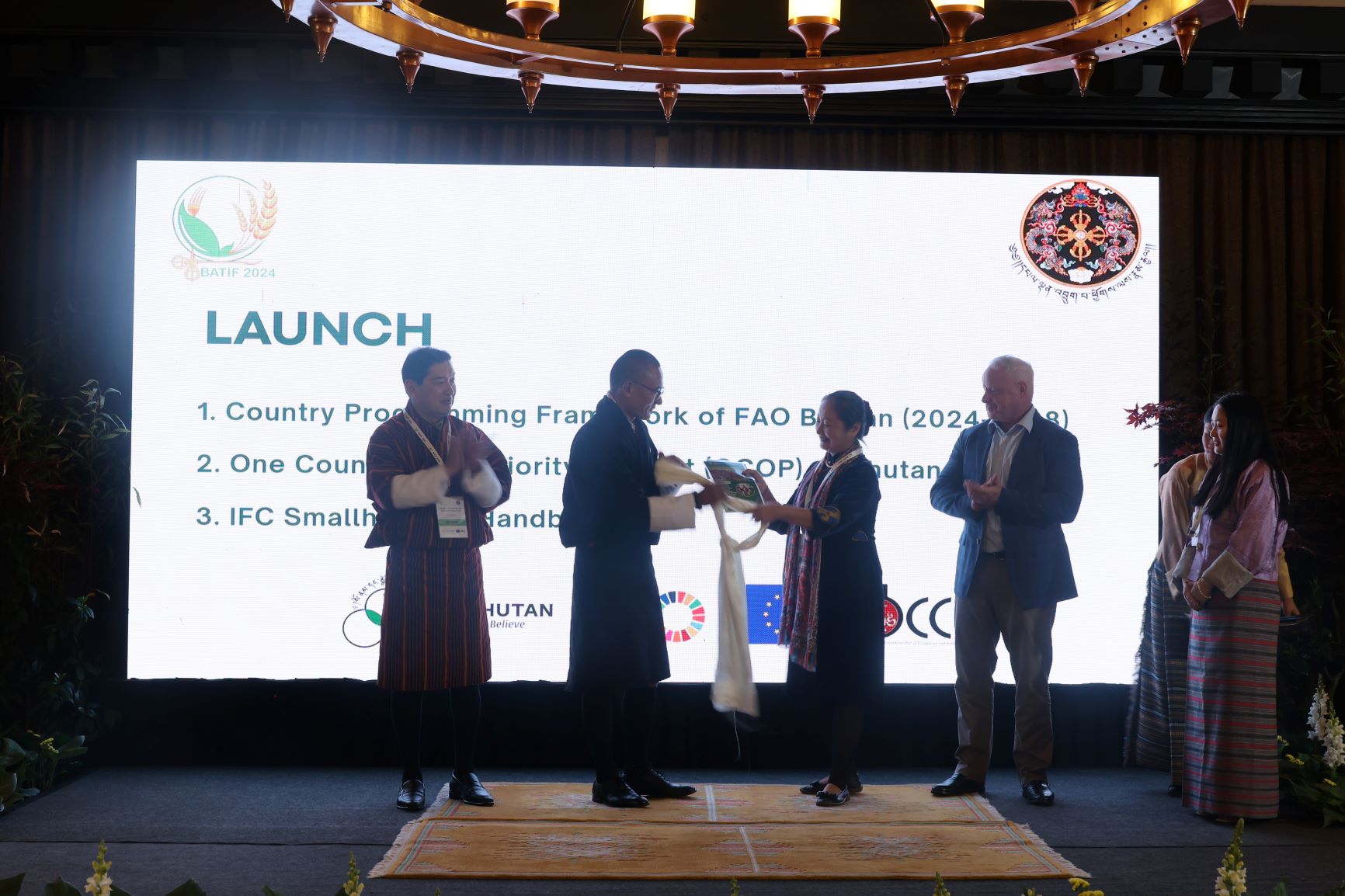News
Bhutan Officially Launches OCOP Initiative to Promote Quinoa

©FAO/Choki Wangmo
The Prime Minister of Bhutan, H.E. Dasho Tshering Tobgay, formally launched the One Country One Priority Product (OCOP) initiative in Bhutan during the Bhutan Agrifood Trade and Investment Forum on 15 May 2024. OCOP, one of the flagship initiatives of the Food and Agriculture Organization, helps countries leverage their potential and identify the Special Agricultural Products (SAPs) adapted to their agroecological production systems and national or cultural heritage, ensuring improved access to stable markets and acting as a key entry point for reaching their defined priorities.
Bhutan joined the initiative in June 2021 and identified quinoa as its SAP. Acknowledging FAO support in the country, the Prime Minister emphasized the importance of including quinoa in the Bhutanese dietary system due to its nutrient-rich nature.
Quinoa was selected for its high nutritional value, potential to generate income for farmers, and suitability for export and trade. As a climate-resilient crop, quinoa also presents an opportunity to mitigate the impacts of climate change on Bhutan's agriculture, particularly in the face of increasing environmental challenges.

OCOP was launched by H.E Dasho Tshering Tobgay, the Prime Minister of Bhutan. © FAO/Choki Wangmo
Currently, quinoa is cultivated primarily in the drylands of Eastern Bhutan, although it is grown across all districts, especially in the mid-valley and mountainous regions. Despite efforts to add value through products like flour, cookies, porridge, and salads, these initiatives have yet to gain significant traction due to limited advocacy. Traditionally, quinoa is consumed mixed with rice.
Bhutan is working to improve the enabling environment and policies for foreign direct investment in the agriculture sector. This will include pulling back on land access rules, therefore providing incentives for investors. The government also intends to simplify the process for foreign experts to work in Bhutan without restrictions. This is being done to increase production of priority commodities, and the government considers these changes necessary for the country's economic growth as well as to further the empowerment of farmers.
Overall, the Bhutanese government seeks to increase the agricultural sector's contribution to the economy from USD 365 million, which was reached in 2022, to USD 625 million by 2029 and USD 854 million by 2034.
"The role of trade and investment in furthering Bhutan's aspirations for economic prosperity cannot be overstated. By leveraging Bhutan's unique agricultural products and expertise, the country can not only enhance food security and rural livelihoods but also tap into new markets and avenues for growth,” noted FAOR Ken Shimizu.
